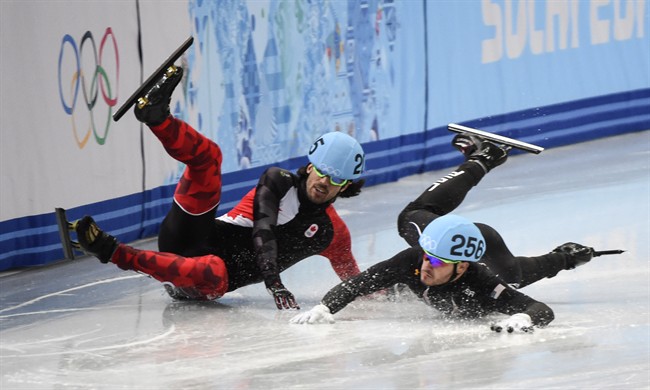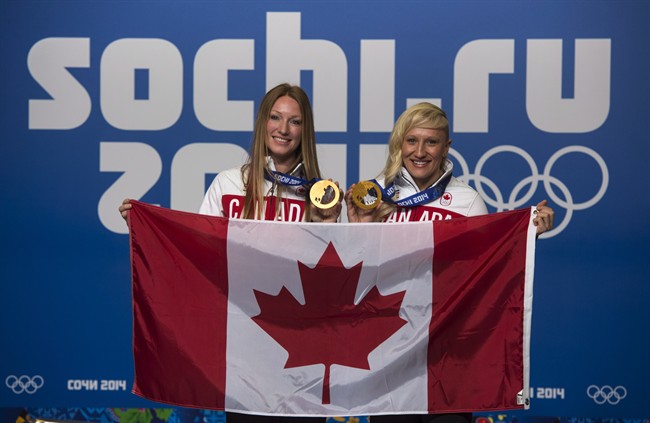CALGARY- Given the emotional rollercoaster the Olympic Games provides, it can be hard to reflect back and distinguish success or failure for a nation of athletes.

If you go by the goals set by Own the Podium and the Canadian Olympic Committee – to improve on the 26 medals won in Vancouver and win the overall medal count – then simply stated, Canadian athletes fell short of the mark.
However, it’s not that simple. Several factors play a role not only during the games, but in the preceding quadrennial. Not excluding results compared to all other countries, which once again put Canada among the top three in the world. The goal was undoubtedly ambitious, especially coming off a home Olympics, which as Russia proved in Sochi with their record medal total of 33 can be great asset.
This is the first time at a Winter Olympics that Canada has failed to improve on its overall medal total since 1980 in Lake Placid. But 25, including 10 gold and 10 silver is nothing to scoff at.
In Sochi, those 25 medals were achieved with a drop off in our previously heavy medal producing sports in speed skating and short track. Speed skaters won five medals, including one gold. In Vancouver they produced 10 of our 26 medals, or just shy of 40 per cent.

Charles Hamelin, while he did win gold in the men’s 1,500 metre short track, had a fall end three of the other races he was favoured to medal in. On the long track, it’s a national team going through a transition, lacking some of the legendary names of old like Clara Hughes, Kristina Groves and Cindy Klassen. But Denny Morrison still provided some magic, proving he’s one of the most clutch Olympic performers around. He’s now the owner of four medals in three Olympic appearances. But with well over half the team making their first Olympics appearance in Sochi, we will see resurgence.
In its place freestyle skiers stole the show. As Freestyle Ski Canada boss Peter Judge put it,“there was a perfect storm.” All told, freestylers won seven medals, three of the gold, and that’s excluding gold and silver from Ski Cross, who in Canada, fall under the Alpine Canada umbrella. The IOC recognizes it as freestyle ski sport.
There was also a fair share of close calls and disappointments that took a toll on the overall medal count. The luge team and men’s cross country ski team were both expecting to win their first ever Olympic medals in Sochi.
The luge team came agonizing close with three consecutive fourth place finishes, the most disheartening coming in the team relay where they were strong medal contenders all season. Meanwhile, despite great results in past World Championships, and even the 2014 Tour de Ski with Alex Harvey and Devon Kershaw, it was a disappointing Olympics for the cross country team, unable to even threaten the podium. The wait will be a long one till 2018.
Spencer O’Brien, who had won bronze in the women’s snowboard slopestyle at X Games just weeks prior to Sochi, finished last in the finals, bringing her games to a tear filled end.
Calgary native Brady Leman, and the rest of the men’s ski cross team were more than capable of duplicating the 1-2 finish the women produced. Leman advanced to the final, only to run into three French skiers who swept the podium, leaving Leman to settle for 4th despite his best efforts to pass.

Kaillie Humphries and Heather Moyse were, once again, a great story from these games, becoming the first to defend their women’s bobsled gold. But the success wasn’t shared by the men, who despite high hopes were unable to podium. Justin Kripps was the closest in 2-man, finishing sixth.
But that same team was also where one of the great Canadian moments of pride and spirit emerged. Kripps, who was moved into the Canada 1 sled by team officials, crashed his four man sled on the second run with a chance to challenge for a medal. The amount of support he received from teammates and crew Jesse Lumsden, Ben Coakwell and Cody Sorenson was inspiring. Starting as a team, and finishing as one through the toughest of circumstances, which includes crashing on the biggest stage in bobsleigh.
That was the last, but certainly not the only example of sportsmanship. Gilmore Junio’s selfless act to give up his spot to teammate Morrison in men’s 1000 metres, because he felt it gave Canada its best shot at a medal has become folklore. Morrison skated to silver, and one of the games most memorable moment was born.

Cross Country Ski coach Justin Wadsworth, despite experiencing a very challenging games for his athletes, jumped into action to help a fallen Russian skier who had no chance of finishing the race on a broken ski. Wadsworth gave him a spare ski he had on course with him, allowing the Russian to “have dignity as he crossed the finish line.”
There is no ranking for sportsmanship, but Canada almost certainly led the way.
Going forward, just like every cycle, some athletes will retire from sport between now and Pyeongchang, South Korea, with the hope and belief their medals and accomplishments have helped inspire the next generation of Olympians.
As we begin to approach February of 2018, that same goal of winning the medal count will be at be hanging for the next edition of Olympians to reach out and grab. Hopefully the support will be there as well, both financially from Own the Podium and corporate Canada, and emotionally.
The true Olympic victory is not only the continuation and evolution of our shift in mindset, but the success that comes from portraying confidence and believing in what are athletes are capable of.
While it didn’t happen in Vancouver or Sochi, Canada can win the overall medal count. We don’t need to just say it anymore, we’ve shown it. Canada is a world power at the winter Olympics.
Bring on 2018.




Comments